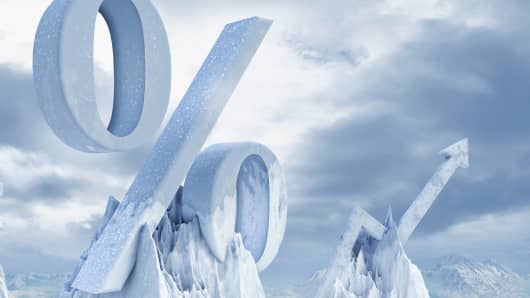Another Small Business Saturday just passed us, but the rosy TV commercials left out the credit crunch that is freezing over the economy. Small businesses can no longer rely on loans from their banks like they always could, and it's because the Federal Reserve has kept interest rates too low for too long. Even the rate hike expected at this week's Fed meeting isn't about to fix this.
What happens when the price of something is held artificially low? Economics 101 tells us that its supply shrinks — sellers aren't willing to part with what they have for less than it's worth. That truism is the story of the banking system's relationship with small business over the last seven years. Banks aren't willing to make loans that don't deliver the return worthy of their risk.





